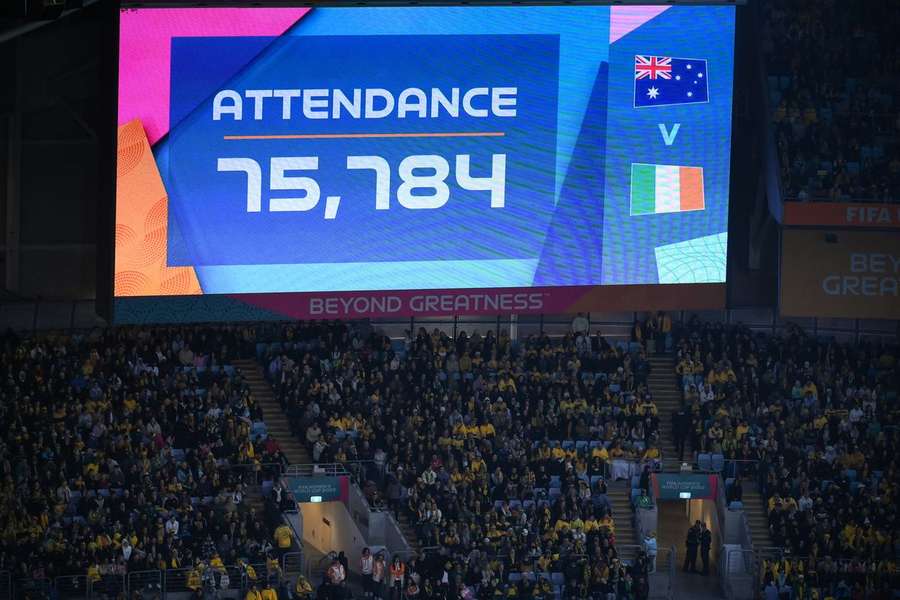Historic 1.5 million tickets sold for Women's World Cup

According to the data released by the organisation, the first 12 matches of the competition have together gathered 363,937 spectators, which represents an average attendance of 30,326 per match, surpassing the average of 21,756 of the World Cup-2019 (France) and the historical average of the competition set at 24,780.
"The 72% increase in attendance compared to France 2019 over the first 12 matches further highlights the growing popularity of women's football globally," the statement read.
The opening match on Australian soil, between Australia and the Republic of Ireland, set a new record: 75,784 fans. Australia alone contributed more than 1.1 million to total ticket sales, reflecting the "overwhelming support and enthusiasm for women's football in the region".
In stadiums and at home
In addition to the massive stadium attendance, television broadcasts have also been a success. New Zealand's match against Norway, for example, was the most-watched women's World Cup match in New Zealand's history. According to Sky New Zealand, more than one million viewers watched the opening match.
In Australia, meanwhile, the match between Australia and the Republic of Ireland, also on the first day of the tournament, recorded an average audience of 1.94 million viewers, almost tripling the previous record and even surpassing some of the figures for the 2022 men's World Cup in Qatar.
"This tournament is making history and we are delighted as a host nation. We are seeing an increase in support for women's football, not only in ticket sales but also in broadcast viewership, fan festival attendance and merchandising sales," noted James Johnson, CEO of Football Australia.
